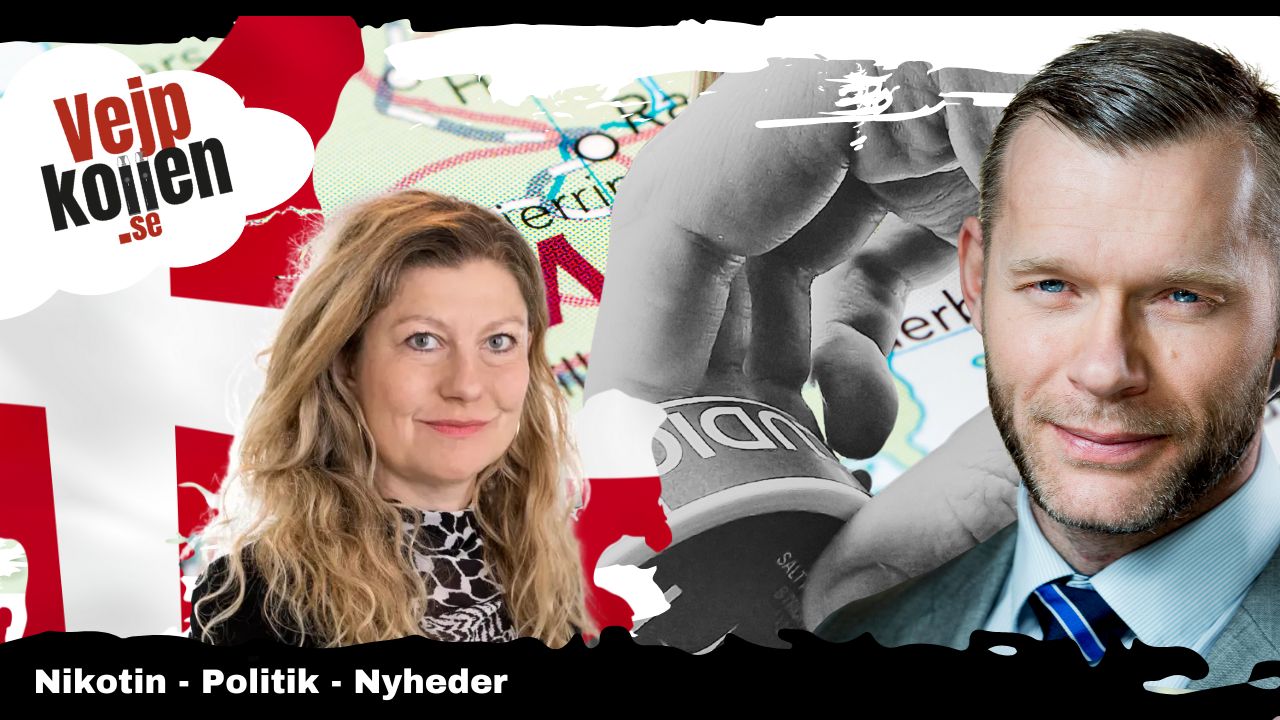The Danish Cancer Society is highly critical of nicotine pouches. But when comparing nicotine pouches to cigarettes, head of prevention Mette Lolk Hanak is clear.
In an interview with podcast host Joachim B Olsen, BT, she admits that nicotine pouches are significantly less harmful than cigarettes.
"Mette Hanak, let's do a thought experiment; if you had to smoke or take snuff, which would you choose?"
This was the question posed by the podcast host Joachim B Olsen, BT in the programme "Bourgeois Tabloid". And although the head of prevention, Mette Hanak, equated cigarettes and nicotine pouches with plague and cholera, she responded anyway:
"With your arm twisted like that - you're a strong man now - I would choose nicotine pouches. " And she continued: "You could say that nicotine pouches are not as dangerous as smoking."
Will regulate hard
Nevertheless, the Danish Cancer Society wants tough regulation of nicotine pouches because the organisation considers nicotine a dangerous poison that can damage young people's brains. But Joachim B Olsen, who uses nicotine pouches himself, countered.
"On your website you say: 'Smoking increases the risk of more than 15 different cancers.' My question is, how much does the use of nicotine pouches increase the risk of different cancers?" said Joachim B Olsen.
"There is actually no knowledge or evidence that nicotine itself causes cancer," said Dr Hanak. "At least not with what we know now." But she pointed out that there is evidence that e-cigarettes can be a gateway to smoking.
"Affects the brain"
Joachim B Olsen challenged Hanak again, urging the Danish Cancer Society to say: "Don't smoke, don't use snus if you can help it. If you can't, if you have to use a nicotine product, then for God's sake use snus, because it is significantly less dangerous."
Mette Hanak rejected this.
"It would be unthinkable that we at the Danish Cancer Society, a health NGO, would recommend a product that is harmful to health". She referred to the risk in relation to children and adolescents. "Especially when we talk about children and young people, there is evidence that it affects the brain - I think that's actually quite serious - that you can get more anxiety, depression, can be more likely to become addicted to other products afterwards."
"Less harmful product"
Joachim B Olsen, for his part, referred to a report from the Norwegian Institute of Public Health, which says that snus is significantly less dangerous and is used by many smokers to quit. He asked the Danish Cancer Society why the organisation does not want to use smokeless products to save the many thousands of Danish cigarette smokers who die every year from smoking.
"I'm also thinking, you're called the Danish Cancer Society", Joachim B Olsen teased. "Your purpose is to fight cancer, so why wouldn't it be good if all these thousands of people who die prematurely every year had replaced their nicotine product with a significantly less dangerous product?"
Zero tolerance for risk
Mette Hanak rejected the argument. "Now you're talking just like the nicotine industry!" she exclaimed, to which Joachim B Olsen replied: "But is that wrong?"
He pointed out that Swedes have been using snus for over 100 years and noted that there is less lung cancer and other smoking-related diseases in Sweden. "Isn't that a better situation, isn't that a more desirable situation?" Olsen asked. But Mette Hanak was dismissive: "I would like to see the burden of proof reversed and say that before you could launch such new products, you had to actually prove that they were not harmful to health at all."
"Same nicotine as in chewing gum"
Against this background, Joachim B Olsen asked about the difference between a nicotine gum and a nicotine pouch. "I have yet to see 15-year-olds abusing nicotine gum - it is a product that is authorised for use by medicines," Hanak replied. To which Mr B Olsen pointed out: "It's all the same nicotine, and you just said that nicotine is dangerous?"
"Smoking is the worst"
The debate ended with Mette Hanak having the last words:
"Smoking is the worst, and there is nothing worse." Both parties agreed on this. The head of prevention at the Danish Cancer Society. "That's the other thing we can't quite agree on - at least not today. "




